| |
|
|
| 1946-50 |
Joseph Churchward QSM |
Typeface Designer |
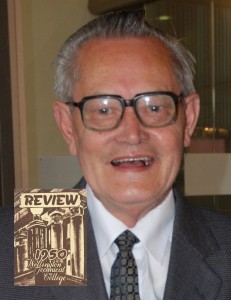 |
In 1962 Joseph started his freelance practice ‘Advertising Art Studio’s’. which grew into Churchward International Typefaces, and, at one point, New Zealand’s largest typesetting firm. In 1969 his first break-through in the commercial application was an original design typeface ‘Churchward 69’, designed specifically for Woolworths supermarkets advertising. To date, Churchward has handcrafted over 600 original typefaces and his letter designs feature on billboards, record sleeves, newspapers, and in digital media all over the world. In 1971 he was awarded seven merit prizes in the American Lettergraphics International Design Competition and in 1984 a Silver award in the Japanese Morisawa Award Type Design Competition. The Klingspor Museum of typography and calligraphy in Germany lists Churchward amongst the world’s most eminent typographic artists. In 2008, a special exhibition was set up for his art at the Museum of New Zealand?, Te Papa Tongarewa, in which they have also acquired a selection of his works; and a biography on his life and work was published early in 2009. He also received the New Zealand Design Institute’s ‘John Britten Award’ for lifetime achievement. Joseph has published a book of his designs and recently gave one to the school library – the Librarians came running across the library to see it as it is so sought after. |
|
| 1947-51 |
Ihakara Puketapu Hon PhD (Vic) |
Maori leader & Maori All Black |
| |
Ihakara Porutu Puketapu has excelled in two careers, the first as a path breaking senior public servant, the second as an inspirational leader in community and economic development. His first career began as a probation and welfare officer, after which he served for a the States Services Commission, becoming Assistant Commissioner and was then Appointed Secretary of Maori Affairs. His innovations include Hui Taumata, Kohanga Reo movement and the Tu Tangata (stand tall) programme, Kokiri, or community based training centres, reforms of the Maori Land Court, important programmes for the development of Maori assets, and the encouragement of Maori to join the public service and fill significant positions there. The most visible accomplishment was the exhibition Te Maori, which brought Maori art and New Zealand’s wider culture to international attention. In 1983 left the public service and helped establish and became Chief Executive Officer of Te Runanganui o Taranaki Whanui Ki Te Upoko o Te Ika a Maui, a health provider, manager of customary fisheries, broadcaster and trading organization. He chairs the Te Aroha Hutt Valley Association, the Waiwhetu Marae and Kohanga Reo, leads the Hauora a Iwi Trust for regional Maori health services, has served on the boards of Hutt Valley Health and Quality Hotels New Zealand, and was responsible for an updated version of Tu Tangata. A Wellington rugby representative and Maori All Black, Kara has coached the Wainuiomata Rugby League team to a national title, chaired the Te Aroha league club when it won the Wellington championship, and is currently working to establish a sports academy. |
|
| 1947-52 |
Jack Chan |
Businessman |
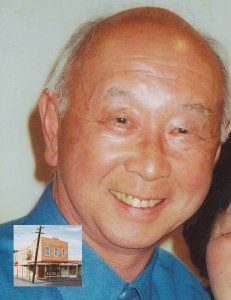 |
Jack came to NZ at 13 and unable to speak English when he started at WHS. But he worked hard and topped his class each year. In 1958 he took over the near bankrupt family business and turned it around in 9 months He then introduced springs rolls as a snack food to NZ before starting his own business. Firstly a small corner shop which he grew into a highly successful business by lowering profit margins and involving customers in purchasing decisions. He went on to own a major supermarket, invest in property and then opened Chan’s down by Chaffers which he finally closed when he retired in 2007. Today he is part owner of the Bolton hotel and regularly accosted in the street by old customers who want to talk. |
|
| 1948-51 |
Ian J Te’o Fairbairn PhD |
Pacific Economics |
| |
Te’o graduated with an MA from the University of Washington in Seattle and gained his PhD from ANU. He is currently Professor at the Centre for Pacific Studies UNSW after working in many Pacific universities. He has been a consultant or researcher for many global organisations including the World Bank, Asian Development Bank, UNESCO and he has presented papers at many conferences He has written 7 books, 14 technical papers and numerous articles. |
|
| 1948-52 |
Peter Mc Queen MA (Hons) |
Educationist |
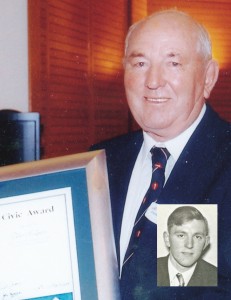 |
Peter began his teaching career as a PE teacher in 1956, he organised many new outdoor education experiences for students and was on the establishment committee of the outward bound school. In 1966 he became a Physical Education lecturer at North Shore Teachers’ College and focussed on developing the Health curriculum for schools and nurses. He played a key role in the development of the 1985 Health curriculum. He was awarded a Fellowship to Cardiff University to work on the Heart Beat programme. He led the NZ National Heart Foundation for 17 years. Since his retirement he has been fully involved in community affairs and received a Civic award for community services in 2005. |
|
| 1948-52 |
Bob Stothart MA |
Fellow PENZ Physical Educator |
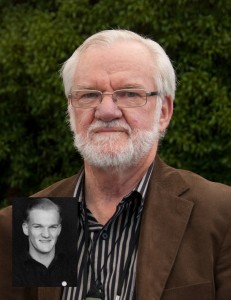 |
Bob trained as a PE teacher and became a PE Adviser, Teachers College lecturer, University lecturer and Director of the New Zealand Council of Sport and Recreation. He is generally considered an expert on the history and practice of New Zealand Physical Education. He has always served organisations and has been president of Physical Education New Zealand, the Wellington Cancer Society, Ruapehu Ski Patrol, Tongariro Natural History Society and is currently president of the Guillan- Barre Syndrome Support Trust and has life membership of the Historic Places Trust, Physical Education New Zealand and the Tongariro Natural History Society. He has written several books and was awarded the Sir Alexander Gillies Medal for Outstanding Services to the Physical Education Profession |
|
| 1949-52 |
Ken Blackburn ONZM |
Actor |
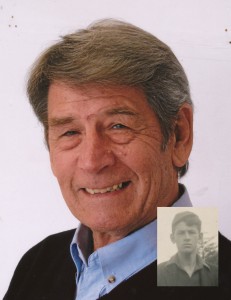 |
Ken is a well known NZ actor, director and writer. He has worked in film, television( e.g.: Skin Deep, 479, Close to Home, Hunters Gold, Flying Doctors) Radio and theatre in the UK, New Zealand, and Australia since the 1960’s. He is best known internationally for his roles in Xena: Warrior Princess and Farscape. In New Zealand he is remembered as the boss in the popular sitcom Gliding On. He has an extensive career as a theatrical performer, and won many awards. In 1999 his performance as Vladimir in Waiting for Godot earned him the Best Actor award at the Chapman Tripp Theatre Awards. He was awarded the New Zealand Order of Merit in the Queen’s Birthday Honours List in 2005. In 1991, the BBC published Blackburn’s book Blitz Kids, about the Bristol Blitz |
|
| 1949-53 |
Don Brown PhD |
Educationist |
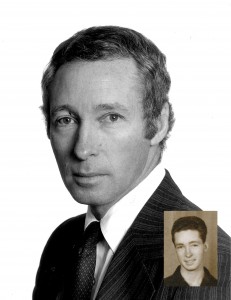 |
Don was Director of Victoria’s Resource Teachers of Learning and Behaviour (RTLB) professional development programme – a programme he had worked with a consortium to develop in the late 1990s. He had a clear vision for how we should support students with special needs and how we can improve our schools and classrooms to cater for their needs. He believed in cooperative teaching and learning and had a huge influence on teaching practice in NZ as we move to inclusive classrooms. He was elected a Life Member of the Psychological Service Association, a Fellow of the New Zealand Psychological Society, an Associate of the NZEI and was awarded the New Zealand 1990 Commemoration Medal for services to New Zealand. When he won the Dame Marie Clay Award, the President of the New Zealand Psychological Society commented that Dr Brown had been “an inspirational mentor, leader and teacher of educational and developmental psychologists and other education personnel, as well as a strong advocate for children’s rights and parental involvement in education”. |
|
| The 1950s |
|
| 1950-51 |
Frank Fakaotimanava Lui CNZM |
Premier of Niue |
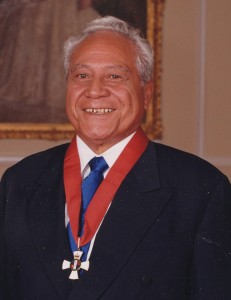 |
Frank began working life in the merchant navy but became politicised when he returned to Niue and organised the successful first ever strike on Niue. Aged 28 he became the youngest person to be elected to the Niue Legislative Assembly. After losing the next election, he was re-elected in 1970 and spent the next 33 years in government, 24 as a cabinet Minister and 6 as Premier. He worked hard to improve life for people on Niue establishing village councils, family benefits, power and water supplies and free education and health. Frank stood down from politics in 1999. However, he has continued his community work and is currently Chair of the Niue Internet Users’ Society. |
|
| 1950-53 |
David Fung MB, CHB, MRCP (Lon) |
Neurologist |
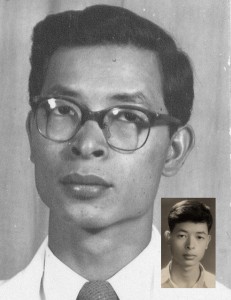 |
David came to New Zealand aged 16 with no English and left Tech at the end of 1953, having completed 7th form and having been awarded Dux. He went to Otago, qualified as a doctor, returned to Wellington for a few years then went to the UK to further his experience and specialise in neurology. He was persuaded to return to Wellington Hospital where he did a lot of work for epilepsy and migraine sufferers. He retired in 2004.David considered his most valuable work beyond his doctoring. David says that at Tech he never experienced racism but later in life learned that NZ has some very racist policies such as the Poll tax levied against Chinese in the early days. His work resulted in a government apology to the Chinese for their treatment in 2002, followed by the establishment of a small charitable Trust which provides assistance in research on New Zealand Chinese history and to assist in the recovery of the language and culture of the poll tax payers descendant community. He is currently writing the history of the New Zealand Chinese Association. |
| |